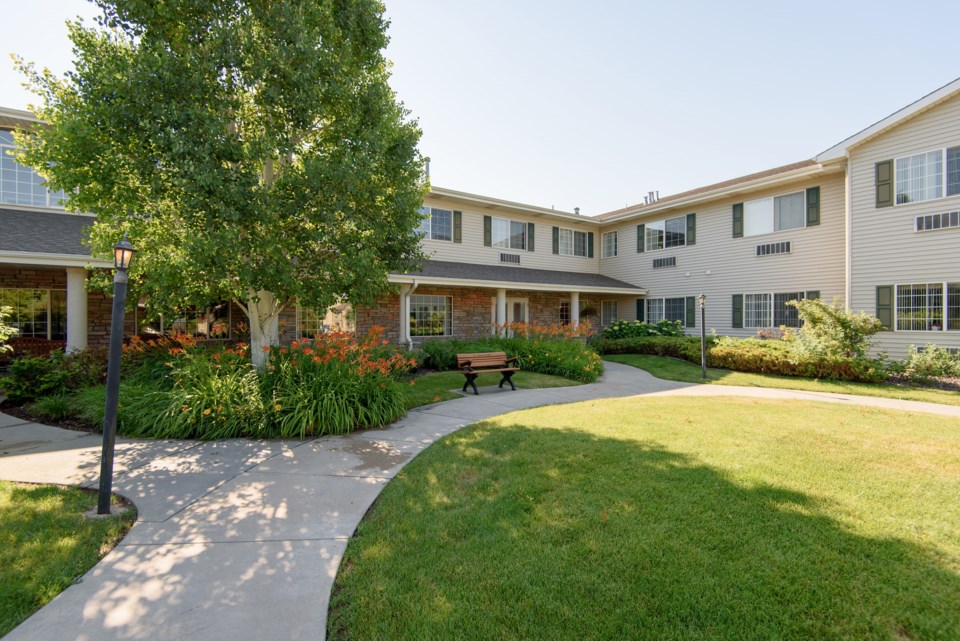A single case. According to outbreak data released July 1 by the Colorado Department of Public Health and Environment, that’s the number of new confirmed or probable instances of COVID-19 at Longmont senior living communities since June 7. Cases include both the communities’ residents and staff, according to the state outbreak data, which is updated weekly on Wednesday afternoons.
The state health department defines an outbreak as two or more confirmed cases of COVID-19 with onset in a 14-day period.
The slowing of case increases is good news, particularly given that senior communities are tasked with protecting a segment of the population particularly vulnerable to the coronavirus, were among the earliest facilities impacted by the pandemic, and were hit hard.
Three Longmont facilities — The Peaks Care Center of Longmont, The Bridge Assisted Living at Longmont and Lifecare Center of Longmont — were among the sites of outbreaks as early as April. Those facilities as of July 1 had a combined 68 confirmed COVID cases and 18 probable cases among residents, 25 confirmed COVID-related deaths, and 41 confirmed and 18 probable cases among staff, according to the state data.
Citywide, 542 people had tested positive or were considered probable as of Wednesday, according to Boulder County Public Health. Across the county, 1,463 people had tested positive for coronavirus as of Wednesday, per health department data.
Dr. Antony Pearson, Longmont United Hospital chief medical officer, said he felt senior care facilities were doing strong work in protecting their populations after experiencing a major early hit and needing to change how they operate.
“One thing that the facilities are doing, which is phenomenal is that, before they allow people who have been hospitalized for any reason back into the facility, they’re screening them with two nasal swabs 24 hours apart,” he said.
Pearson shared that after an initial surge, hospitalized COVID-19 cases at Longmont United Hospital dropped to zero by Memorial Day weekend and started to climb in mid-June to a high of five people. It lowered back to two cases as of the July 4 weekend, with one of those patients not surviving their illness. He was careful to note that many of the recent cases involved people younger than 60.
“I suspect, anecdotally, that most people who are older are taking it more seriously than the younger people,” he said.
What kinds of precautions are assisted living facilities taking that are making an impact? Esmerelda Lee, chief operating officer for Century Park Associates, owner of The Bridge Assisted Living, said everyone at its residences has gotten acclimated to following protection guidelines. “Staff puts on their masks just like they put on their uniform. Residents going out of their apartment wear their masks as if it’s just another part of getting ready.”
Lori Follet, The Bridge’s regional director of resident care, outlined some of the other precautions the community is taking. They include continuing to restrict visitor access, maintaining elevated disinfecting measures, social distancing reminders like floor markers indicating 6 feet of space, and a focus on hand hygiene.
When asked what kind of advice he’d have for anyone wanting to protect themselves, Pearson gives advice that mirrors what The Bridge has implemented.
“Wash your hands and sing the alphabet song so you know you’re washing them for long enough. Five seconds is not adequate. If possible, don’t touch your face. Wearing a mask when you’re out is more important to protect others than to protect yourself,” he said. “And unfortunately for right now, avoid large family gatherings for things like birthday parties and weddings.”
He also suggested those who are eligible should take part in early morning senior shopping hours or shop online and have their purchases delivered.
If Pearson’s advice sounds familiar, there’s a reason. The same directives are shared repeatedly by the state of Colorado, the Centers for Disease Control, and elsewhere.


